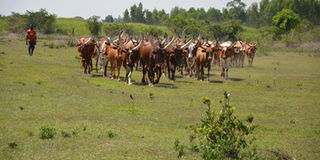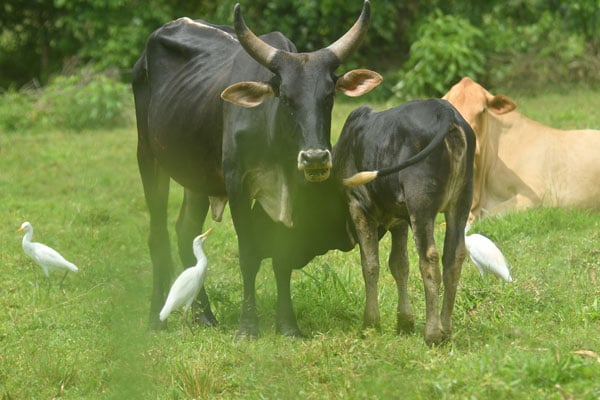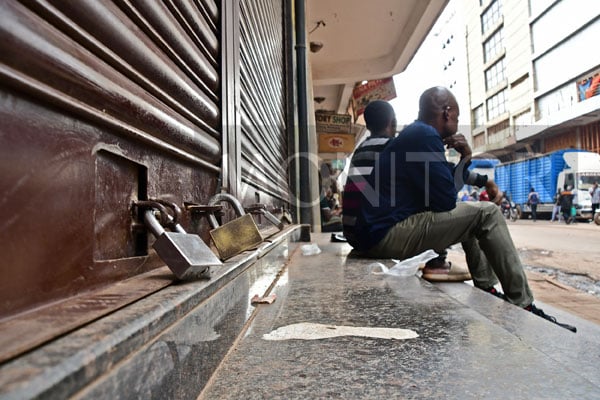Farmers reject Speaker Among’s proposal to tax cattle

A herdsman while rearing cows in Bugiri District recently. PHOTO | TAUSI NAKATO.JPG
What you need to know:
- While presiding over Parliament last Thursday, Ms Among suggested the government should seek other tax sources instead of relying on the same group [traders] for revenue.
Farmers and traders have opposed a proposal by the Speaker of Parliament, Ms Anita Among, to levy a tax on cattle.
While presiding over Parliament last Thursday, Ms Among suggested the government should seek other tax sources instead of relying on the same group [traders] for revenue.
Her statement followed a disagreement between the Uganda Revenue Authority (URA) and traders over the implementation of the Electronic Fiscal Receipting and Invoicing Solutions (Efris) system which resulted in the closure of shops in different cities as a sign of protest last week.
Ms Among said farmers are earning abnormal profits from cattle.
“I own more than 2,000 cows and I am not charged any taxes, nor does anyone ask how much income I generate from them. We should broaden the tax base rather than cause the traders to struggle. Many people have numerous cows. The government should begin taxing them,” Ms Among said.
Mr Samson Ojune, the chairperson of Katakwi Cattle Traders Association, said most of the revenue that sustains the district is collected from cattle markets.
“Our district is getting revenue from cows. We pay for the village chairperson’s recommendation letter and other fees like for loading, veterinary, market and district, among others. We cannot accept more taxation of cattle. The speaker is not well informed,’’ Mr Ojune, who has been in the sector for three decades, said at the weekend.
Ms Judith Namuyanja, a cattle trader in Buikwe District, said more taxes on cattle would affect the final consumer.
“If a farmer is taxed, the purchase price of cattle will also increase. If a sheep costs Shs1.5m, it will increase to Shs1.8m, we shall be operating in losses and the last consumers will have to dig deeper into their pockets to buy meat,’’ she said.
Mr Ojune also revealed that they spend a lot of money on animal health.
“We incur a lot of expenses in buying drugs for treatment, salt, and artificial insemination,’’ he said.
The chairperson of Jinja City Abattoir and Butcher’s Association, Mr Ronald Mutabi Byarugaba, said they pay indirect taxes.
“We pay fees like cattle traders’ licences, we have to hire trucks and buy fuel for transportation. All the cattle products are taxed so it is beyond double taxation, which is against the law,’’ he said.
Mr Moses Mukajjanga, the chairperson of Mafubira Slaughterhouse in Jinja South City Division, urged Ms Among to consult the Agriculture ministry.
The chairperson of Kamuli Municipality Cattle Traders Association, Mr George Katongole, said the Speaker’s proposal will kick them out of business.
Mr Abby Kizito, a butcher at Nakasero Market in Kampala, said Ms Among should look for other alternative ways of widening the tax base because “the expenses they incur from the farm up to the consumer are high’’.
Livestock census
According to the Livestock Census of 2021 conducted by the Uganda Bureau of Statistics together with the Agriculture ministry, released in March 2024, Uganda has 14.5m cattle, goats 17.4m, sheep 4.4m, pigs 7.1m, and rabbits
2.2m. Sub-regional analysis indicated that Karamoja had the highest number of cattle (2.4m) followed by Ankole (1.8m), Buganda North (1.6m), Buganda South (1.2m), and Busoga (1.1m). The lowest number of cattle was reported in Kigezi (305,000) and Bukedi (469,000).




